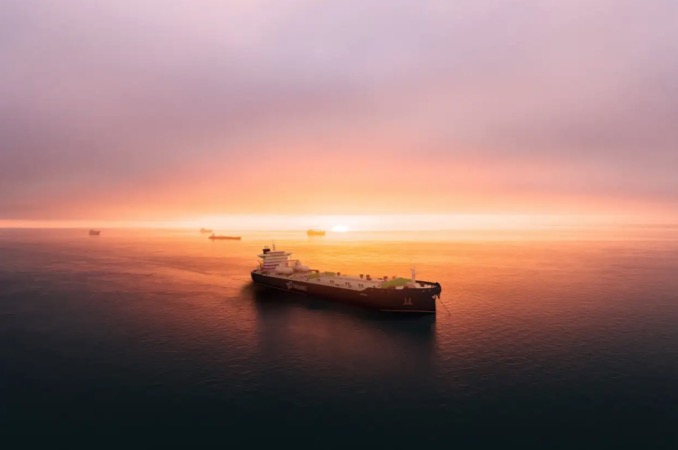Provaris Energy has revealed a gaseous hydrogen floating storage concept that has been granted approval in principle by the American Bureau of Shipping (ABS).
The solution, dubbed H2Leo, has a design capacity range of 300 to 600 tonnes of hydrogen, expandable to up to 2,000 tonnes. The ASX-listed company said the unit is suitable for various hydrogen supply chains and applications, including bunkering for the maritime sector, intermittent/buffer storage for green hydrogen production, and long-duration storage for excess renewable energy.
The H2Leo will have two cargo tanks with independent isolation, safety valves, and manifolds for compressed hydrogen transfer. ABS has conducted risk and safety workshops to assess and mitigate hydrogen handling risks. Provaris said it will work with ABS for design approval, cargo tank testing, and construction. The H2Leo class will have a fixed beam and depth of 31 m and 17 m, respectively, with length and draft varying according to the specified cargo capacity.
The cost of large-scale static storage is currently estimated by external studies to be in the range of $1m to $2m per tonne of storage installed, while Provaris claims that the cost of its floating storage solution will target a capital cost of $0.2m to $0.3m per tonne.
The development of H2Leo will run parallel to the remaining engineering and approvals for its H2Neo carrier, targeting prototype testing and final class approval later this year, with the unit set to become available in 2025.
Tags: ABS, Floating, Hydrogen, Provaris Energy



Recent Posts
Scandlines Nears Delivery of Zero Emissions Ferry Following Successful Sea Trials
India faces emission roadblocks with rising net-zero demands
Green Energy Resources invests in two electric Liebherr LHM 550
NYK Launches Continuous Use of Bio LNG Fuel on Car Carriers to Advance Decarbonization Goals
Yang Ming Expands Fleet with Methanol and LNG Dual-Fuel Vessels Under Fleet Optimization Plan
ClassNK Advocates Speed Gap Monitoring to Optimize Fuel Efficiency in Heavy Weather
Wärtsilä’s retrofit package for the Corsica Linea ferry Pascal Paoli has resulted in fuel savings of up to 22 percent Corsica Linea
COSCO Shipping Names Second Methanol Dual-Fuel Containership in Yangzhou